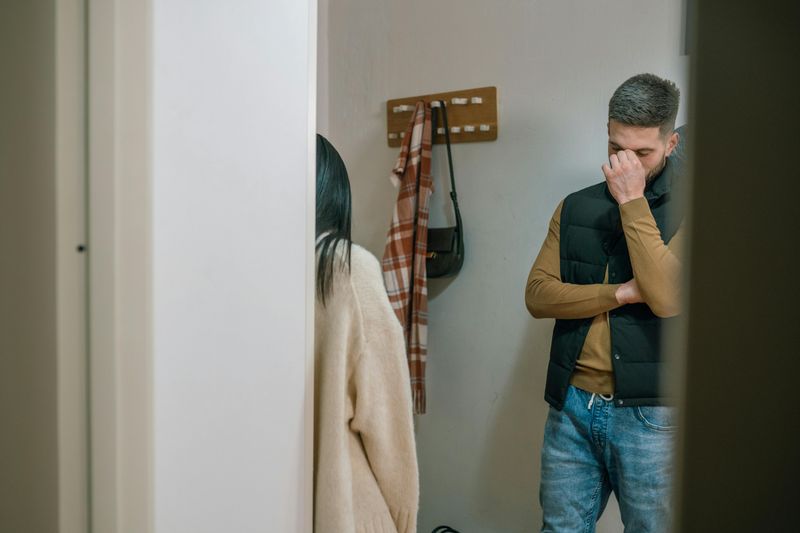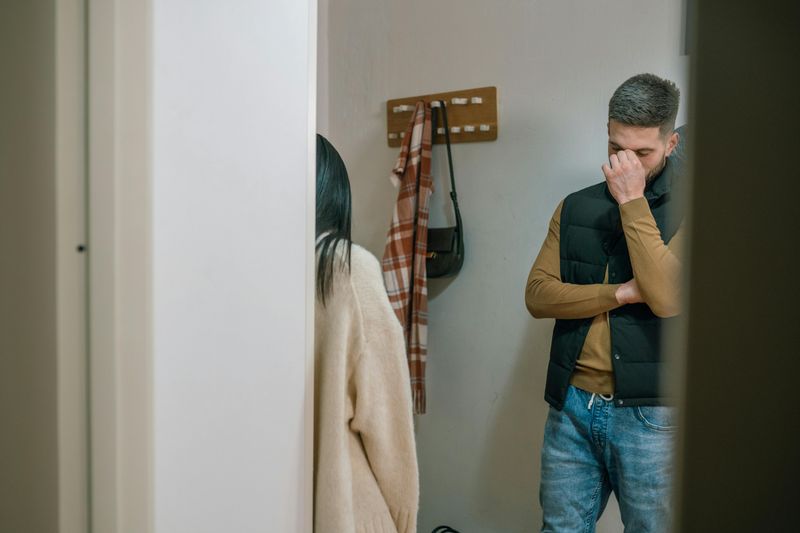What to Do When You Realize You’re the Toxic One in a Relationship

Facing the truth about ourselves can be the hardest part of personal growth. Recognizing toxic behaviors in your relationship—and acknowledging that they’re coming from you—takes tremendous courage. This moment of self-awareness, though painful, is actually an opportunity for profound change and healing, both for yourself and your relationship.
1. Acknowledge Your Behavior Honestly

Looking in the mirror isn’t easy when you don’t like what you might see. The foundation of any meaningful change begins with radical honesty about your actions and their impact. No sugar-coating, no partial admissions.
Many of us instinctively create stories that cast us as the victim or justify our worst behaviors. Breaking this pattern requires sitting with uncomfortable truths about yourself. Try writing down specific instances where your behavior was harmful without adding “but” statements afterward.
Remember that acknowledging toxic behavior doesn’t mean you’re a toxic person at your core—it means you’re human with patterns that need changing. This distinction is crucial because shame keeps us stuck while responsibility moves us forward.
2. Seek to Understand the Impact

Your actions create ripples that affect your partner in ways you might not fully grasp. Genuine curiosity about how your behavior impacts them opens the door to empathy and real connection. Ask questions like “How did that make you feel?” and then simply listen.
Resist the urge to defend yourself when hearing painful feedback. Your partner’s emotional experience is valid even if it wasn’t your intention to cause harm. Watch for physical reactions too—the flinch when you raise your voice, the tension in their shoulders when you enter a room.
Understanding impact doesn’t mean endless self-flagellation. Rather, it creates the awareness necessary for meaningful change and helps you prioritize which behaviors need immediate attention.
3. Take Responsibility Without Excuses

Owning your behavior means dropping the shield of excuses that protects your ego but damages your relationship. Clean apologies focus solely on your actions and their impact, not on explaining why you did what you did.
“I’m sorry I raised my voice and called you names. That was disrespectful and hurtful” carries healing power. “I’m sorry I yelled, but you pushed my buttons” only creates more harm. Notice how the first apology stands alone without qualification.
Taking responsibility also means accepting consequences without bargaining. Your partner may need space or time to rebuild trust. Respecting these boundaries demonstrates that your commitment to change extends beyond words into actions that honor their needs.
4. Identify the Underlying Causes

Toxic behavior rarely exists in isolation—it usually has roots in your past experiences, insecurities, or learned patterns. Maybe you lash out when feeling vulnerable because vulnerability was dangerous in your childhood. Perhaps you control your partner because abandonment is your deepest fear.
Start connecting these dots through journaling, meditation, or conversations with trusted friends. Ask yourself: “What am I feeling right before I behave this way?” and “Where did I first learn this response?” The answers often reveal wounds that need healing.
Understanding causes isn’t about excusing behavior but gaining clarity about your emotional triggers. This awareness creates space between stimulus and response—the very space where healthier choices become possible.
5. Communicate Openly and Respectfully

Vulnerability takes courage, especially when admitting harmful behaviors. Choose a calm moment to share your realizations with your partner, using “I” statements that focus on your actions rather than their reactions. “I’ve realized I often interrupt you when you’re speaking, and I’m working to change that.”
Frame the conversation around your journey of growth rather than seeking immediate forgiveness. Give your partner space to share how they’ve been affected without becoming defensive. Their perspective might reveal blind spots you haven’t yet recognized.
If emotions run high, suggest taking a short break before continuing. Remember that this isn’t a one-time conversation but the beginning of a new communication pattern that prioritizes honesty and respect.
6. Practice New, Healthy Behaviors

Breaking old patterns requires consistent practice of new ones. Start small—if you tend to criticize, challenge yourself to offer three genuine compliments daily. If you’re prone to angry outbursts, develop a “time-out” signal with your partner to use when emotions escalate.
Failed attempts aren’t failures—they’re learning opportunities. When you slip back into toxic behaviors (and you will occasionally), acknowledge it quickly, apologize sincerely, and recommit to your growth. Each attempt builds new neural pathways that eventually become your default response.
Celebrate progress, no matter how small. Notice when you successfully navigate a situation that would have triggered toxic behavior in the past. These victories, however modest, are proof that change is happening.
7. Consider Professional Support

Some patterns are too deeply ingrained to overcome alone. A skilled therapist offers both a mirror to see yourself clearly and tools to create lasting change. They can identify blind spots you miss and provide objective guidance when emotions cloud your judgment.
Different support options serve different needs. Individual therapy helps address personal wounds and triggers. Couples counseling improves communication patterns and rebuilds trust. Support groups connect you with others on similar journeys, reducing isolation and shame.
Finding the right professional match matters. Interview potential therapists about their experience with your specific challenges. The therapeutic relationship itself should feel both supportive and gently challenging—comfort without accountability won’t create the change you’re seeking.
8. Commit to Ongoing Self-Work

Meaningful change isn’t a destination but a lifelong journey. The path isn’t linear—you’ll have setbacks alongside breakthroughs. What matters is recommitting each time you stumble rather than abandoning the process entirely.
Regular self-reflection prevents complacency. Set aside time weekly to honestly assess your behavior and progress. Some find meditation helpful; others prefer journaling or conversations with accountability partners. The method matters less than the consistent practice of looking inward.
Growth happens in spirals rather than straight lines. You’ll revisit old challenges at new levels of awareness. Each time, you’ll bring more wisdom, compassion, and skill to the work. This isn’t starting over—it’s deepening your understanding on the continuous journey toward becoming your best self.

Comments
Loading…